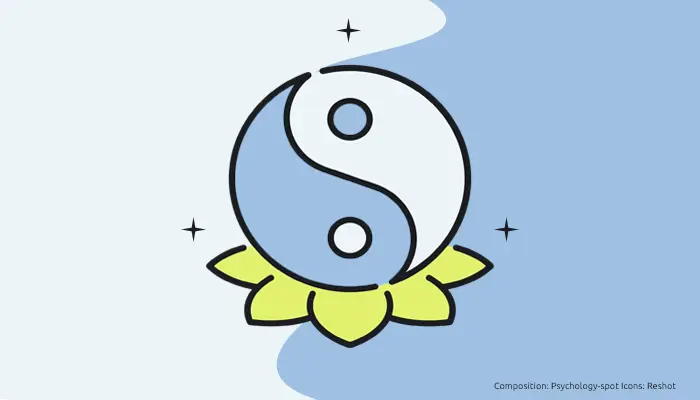
For centuries we have been led to believe that happiness is something ephemeral. In fact, there are even religions that proclaim that it cannot be found in this world. As a result of so many years of indoctrination, many people adopt a passive role, waiting for happiness to knock on their door and sometimes when it does, they are not even able to recognize it and invite it in.
Fortunately, in recent times something has begun to change. With the help of Positive Psychology and philosophical currents such as Buddhism, happiness has once again been placed at the centre of our existence. Therefore, it is advisable to take a look at ancient wisdom to rediscover what it has to teach us. And there is nothing better than doing so through the thought of the Dalai Lama, spiritual leader of Tibetan Buddhism.
The best quotes from the Dalai Lama
1. The fundamental purpose of our life is to seek happiness
In a world where material possessions count more than spiritual development, it is easy to be contaminated by this mirage and build a life whose sole purpose is to accumulate wealth, with the aim of achieving supposed security. However, this simple phrase becomes a declaration of intentions that can radically change our lives.
2. Happiness is not something that comes ready-made, it is something you build with your actions
Many people never become happy because they think that happiness is like a lottery, a ticket that they simply win. However, happiness is something that must be built every day, with each of our actions. Even the greatest stroke of luck will not make us happy; it will generate euphoria but not happiness, because to be happy we must invest in our personal development.
3. If you want the happiness of others, be compassionate. If you want your own happiness, be compassionate
Compassion is one of the principles proclaimed by many religions, but it is also one of the most difficult rules to apply. Being compassionate does not mean feeling sorry for others but trying to eliminate suffering and promote well-being. Compassion implies understanding, radical acceptance and change. Therefore, one of the secrets of happiness lies precisely in developing a compassionate attitude, both towards others and towards ourselves.
4. When we suffer a tragedy we can react in two ways: losing hope and sinking into self-destructive habits or using the challenge to find our inner strength
Many people complain that they have led an unfortunate life and have not had many opportunities. However, the truth is that they use their past as an excuse, without realizing that in doing so they are tying down their present and future. We all have different life stories, but the past cannot be an excuse to stop looking for happiness. It is in adversity that we discover what we are really made of.
5. The best relationship is one in which the love for each exceeds the need for the other
Our greatest satisfaction comes from interpersonal relationships, and so does our greatest suffering. Therefore, to achieve happiness, it is essential to rethink relationships. The Dalai Lama tells us what Erich Fromm had already said: love is not a need, it is a commitment. It is about each person cultivating their own happiness and only then, once they have matured, will they be able to love the other for what they are, not because they make up for their emotional deficiencies.
6. The greater the level of calmness of our mind, the greater our ability to enjoy a happy life
One of the secrets of happiness is knowing how to control the mind. In fact, it is in our mind that most doubts arise and problems grow. A calm mind will allow us to find the best solution and adopt the necessary distance from conflicts, in order to evaluate them in their proper measure. On the contrary, an excited and uncontrolled mind can invent problems and obstacles that do not exist and that make us unhappy.
7. Remember that not getting what you want sometimes means a wonderful stroke of luck
We often cry over spilt milk, because at that moment we can only see that we have lost nourishment. However, every problem is an opportunity to grow, to explore new paths that we might not have otherwise discovered. Sometimes it is setbacks that force us to get out of our comfort zone, broaden our horizons and find happiness.
8. Most of our problems have their origin in attachment to things that we mistakenly believe to be permanent
One of the principles that Buddhism preaches is detachment. According to this philosophy, much of our suffering is caused by attachment to things or people, an attachment that becomes a compulsive bond that leads us to think that without that possession we will not be happy. For Buddhism, detachment does not mean ceasing to love but ceasing to experience that compulsive need and, above all, being aware that we cannot subordinate happiness to our possessions or the affection of other people.
9. Judge your success by what you had to give up to get it
Success has a social component, it implies a certain recognition from others. Or at least that’s what we think. However, the success that is experienced in a more intimate way is often the one that generates the greatest happiness. In that case, we should not value it by what we have achieved or how far we have come, but by how much we have worked hard and by everything we have had to leave behind. Every time we consciously give up something, we grow, because we shed the past to travel lighter.
10. People take different paths to find fulfillment and happiness. Just because they’re not on your path doesn’t mean they’re lost
We are social beings, so it is very difficult to escape the judgment of others. However, each person must set their own goals and find the best way to achieve them. In the same way that we should not force others to follow our path, we should not fall into the temptation of following the path that others have marked out because it might not be the most suitable for us. Remember that happiness is a personal journey.
Last but not least, the Dalai Lama leaves a piece of advice that perfectly encapsulates the sentiment of Buddhist philosophy and reflects his moral code: “Be kind whenever possible. And know that it is always possible.”




Leave a Reply